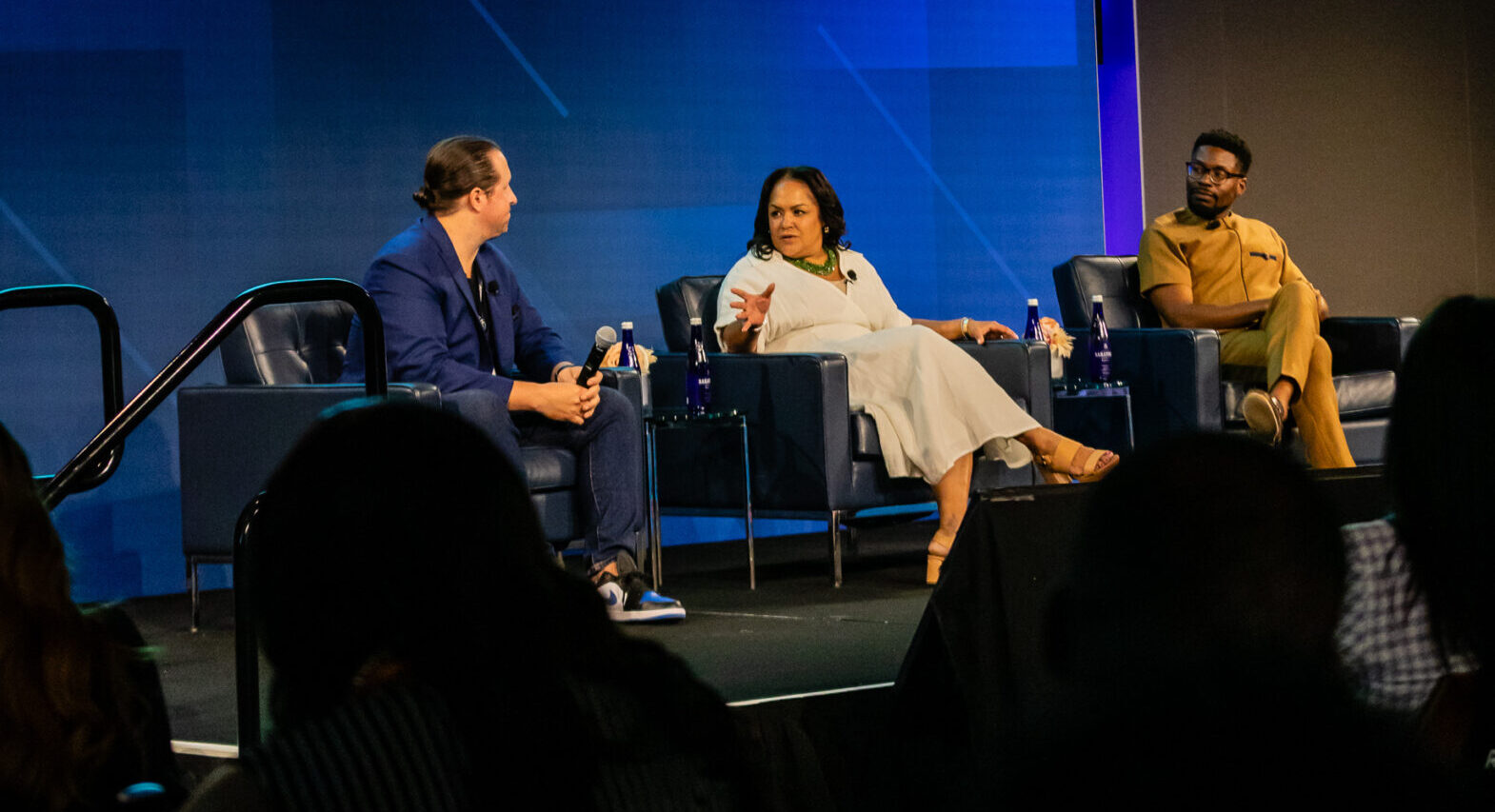In June 2024, AFROTECH™ Executive Newark engaged attendees on several of today’s hot topics in tech and business including AI.
Helming the discussion “How Harnessing AI Could Potentially Future-Proof The Workplace” at the Newark, NJ, event were Sam Caucci, founder and CEO of 1Huddle; Michele Alcazar, vice president of workforce transformation strategy at Prudential Financial; and Daniel Adeyanju, director of partnerships at The Knowledge House.
During the panel, Caucci shared a Gallup report, which estimated that 70% of skills and the tasks that make up work will change over the next decade. While there is set to be an increase in reskilling, Caucci believes that AI could not only help organizations improve skills mapping but also improve low rates of employee engagement.
“I think the opportunity we have in this moment when I think about the opportunity for AI is, how do we tackle these really big community labor workforce opportunities that organizations have always struggled with? Employee engagement has been a big challenge area. AI can be used to make workers feel more supported — feel like they have a better sense of belonging. Instead of running around calling everybody unskilled, as an example.”
He added, “I think AI can be a very powerful navigator for talent development organizations to help them understand where they should better spend their time. And it should also be something that moves its way all the way up to the C-suite to put it front and center on dashboards just like they look at any other key performance indicator or metric, so they can understand the true health of their workforce.”
In the same breath, Alcazar shared how Prudential Financial is going about its recruiting process amid AI. She pointed out that the human element will remain as it’s necessary for hiring managers to still provide criteria for job openings “in order for the AI to even figure out who the best candidates are.”
“If we get this right, maybe for the first time we can level the playing field a little bit because it’s about what that person brings,” said Alcazar. “It’s about what we need in the job, and it’s about the company we want to become without all the other lenses that hiring managers wear. I think that’s a positive but it’s also an example that somebody still needs to define what you want. I don’t know that any kind of algorithm can do that for you.”


